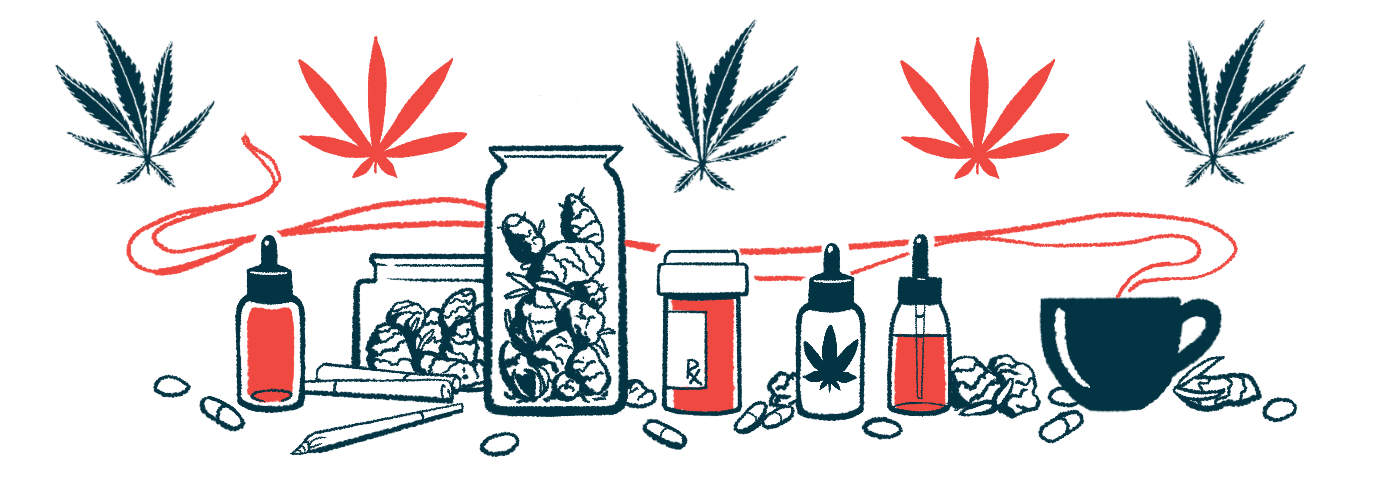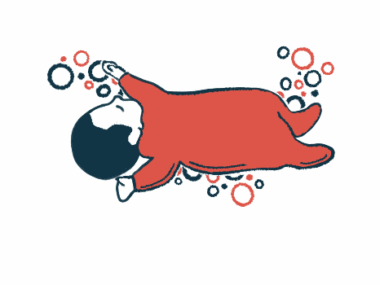Epidiolex, a cannabidiol, may help ease seizures in resistant epilepsies
Study in Dravet and other adult patients finds 27% responded to therapy
Written by |

Epidiolex (cannabidiol) can help to reduce seizure frequency in some adults with generalized or localized forms of epilepsy — including Dravet syndrome — that are resistant to other anti-seizures medications, according to a retrospective study in France.
Among the 27% of patients who responded to this treatment, most were receiving it as an add-on therapy to clobazam (sold as Onfi, among others names), a common anti-seizure medication.
“This study showed no significant difference regarding the type of drug-resistant epilepsy and suggests that this treatment may be of interest for all types of drug-resistant epilepsy,” the researchers wrote.
The study, “High-purified cannabidiol efficacy and safety in a cohort of adult patients with various types of drug-resistant epilepsies,“ was published in Revue Neurologique.
Oral cannabidiol therapy is sold as Epidyolex in the European Union
Epilepsy is a neurological disorder characterized by recurrent seizures, episodes of abnormal and excessive electrical activity in the brain. Dravet, particularly, is marked by various types of seizures that are prolonged and begin early in life, with these events potentially leading to a wide range of disease symptoms of varying severity.
Anti-seizure medications can help to lower the frequency of these episodes in most people with epilepsy, but a significant proportion of patients do not respond to these type of medications.
Epidiolex — available under the brand name Epidyolex in the European Union — is an oral medication containing highly purified cannabidiol (CBD), a compound found in the cannabis plant, which acts on brain receptors to help regulate seizures. It has been approved for treating seizures in patients with Dravet and Lennox-Gastaut syndrome, another rare form of epilepsy.
However, evidence supporting Epidiolex’s effectiveness in treating other forms of epilepsy and in adult patients is limited.
Researchers evaluated the safety and efficacy of Epidiolex in adults with various forms of drug-resistant epilepsy, recruited at epilepsy centers in Marseille and Lyon. A total of 73 patients, ages 18 to 62, used Epidiolex as an add-on therapy to other anti-seizure medications.
Response to treatment defined as 50% or greater drop in monthly seizures
Patients were divided into two groups according to their underlying epilepsy syndrome: 51 had generalized epilepsy associated with severe epilepsy syndromes of early childhood, including Dravet (20%); the other 22 had localized forms of epilepsy, called focal epilepsy. Participants were followed up for a median of one year in the first group, and 7.5 months in the second.
Patients with generalized epilepsy used significantly higher median daily doses of Epidiolex than those with focal epilepsy (12.3 vs. 7.5 mg/kg/day). A little more than half of the patients in both groups also were receiving treatment with clobazam.
Overall, 20 patients (27.4%) responded to the therapy, with response defined as a 50% or greater reduction in monthly seizure frequency. The percentage of Epidiolex responders was similar between the two groups: 15 patients (29.4%) with generalized epilepsy, and five (22.7%) with focal epilepsy.
Most responders (80%) also were using clobazam.
“Response to high-purified-CBD was significantly associated with concomitant treatment with [clobazam],” the researchers reported.
At the last follow-up visit, no patient in the generalized epilepsy group was free of seizures, 13 had a reduction in seizure frequency lower than 50%, about one-third had no change in seizure frequency, and six had increased seizure frequency. Among patients with focal epilepsy, one was free of seizures, four had a frequency reduction below 50%, half experienced no changes, and two had greater seizure frequency.
Common side effects ranged from sleepiness to poorer appetite
A total of 40 patients reported adverse events, which were mild to moderate in severity. The most common were somnolence, worsening seizures, digestive issues, decreased appetite and weight loss, physical weakness or lack of energy, and problems with motor coordination and/or behavior.
At the last follow-up, 24 people had stopped the treatment due to a worsening of seizures (two patients), lack of efficacy (three patients), safety concerns (six patients), and a combination of factors among the remaining 13 patients.
While the researchers noted that Epidiolex could be of benefit to patients with all types of drug-resistant epilepsies, “there may be precautions to be taken regarding tolerance, with a high proportion of side effects notably due to drug interactions with [clobazam].”
This study’s findings into the “real-life use of high-purified-CBD should … be taken with caution and future studies with longitudinal follow-up, randomization, and better methodologies are needed to confirm these results,” the scientists added.






